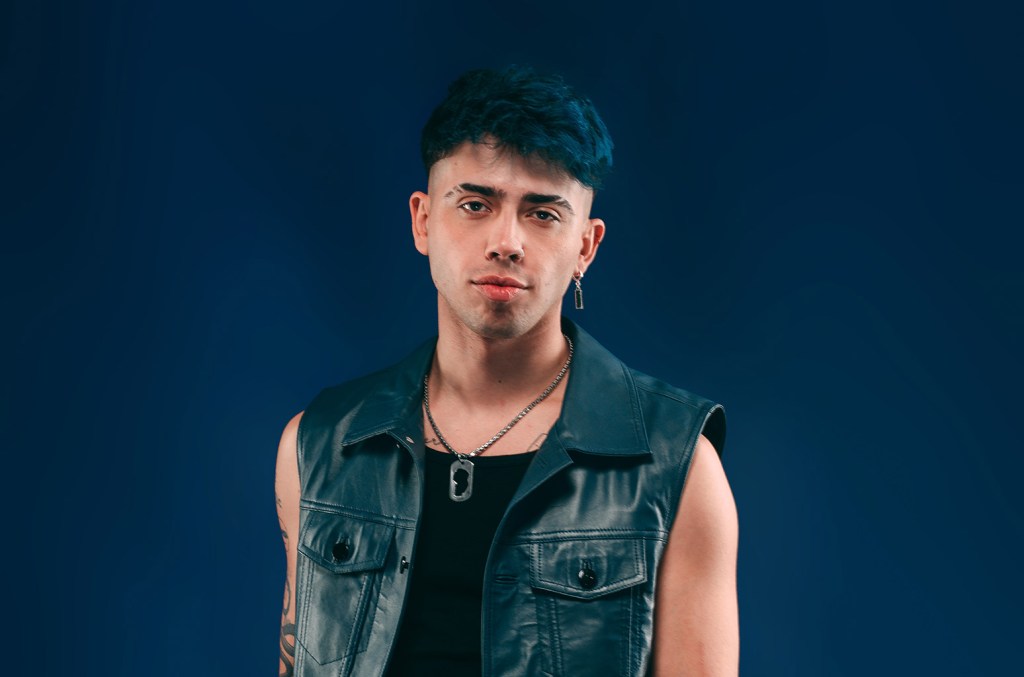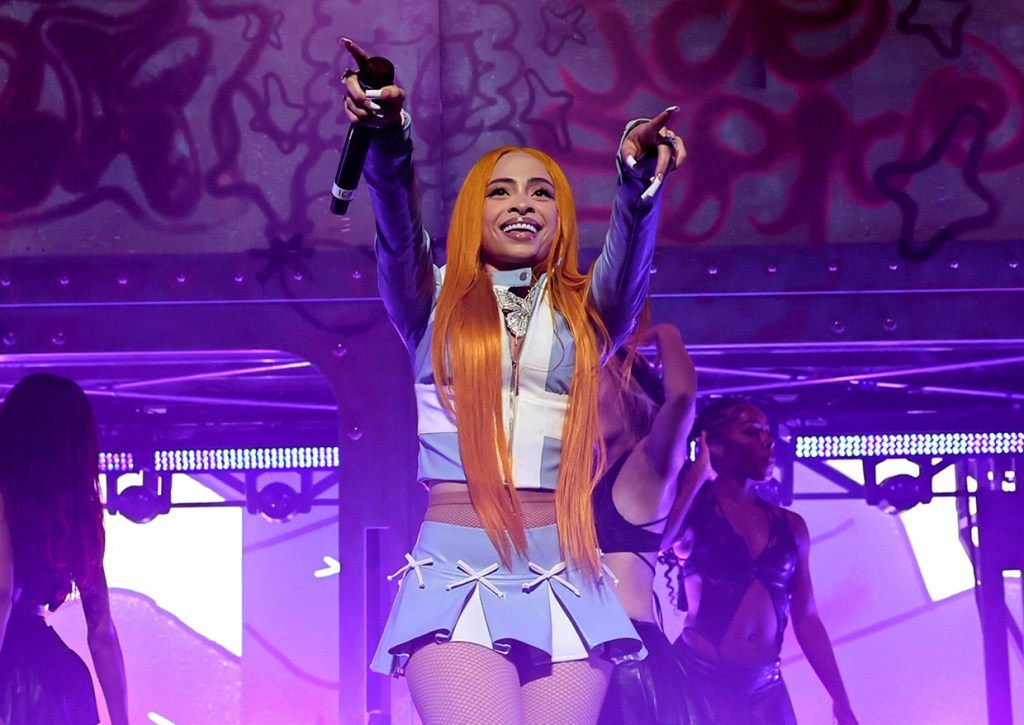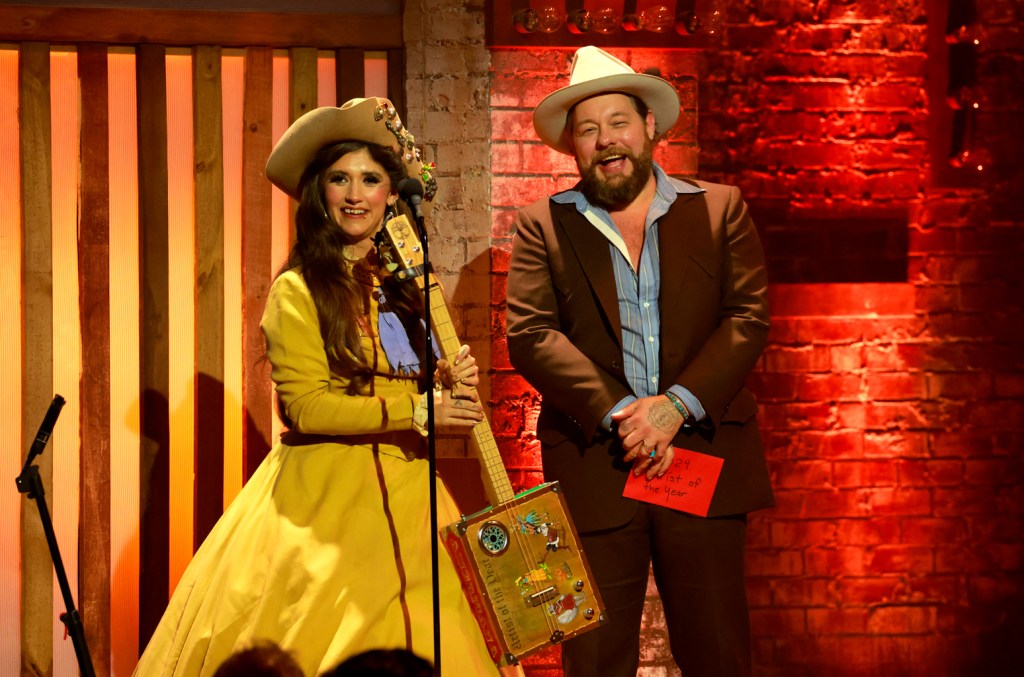Music
Page: 167
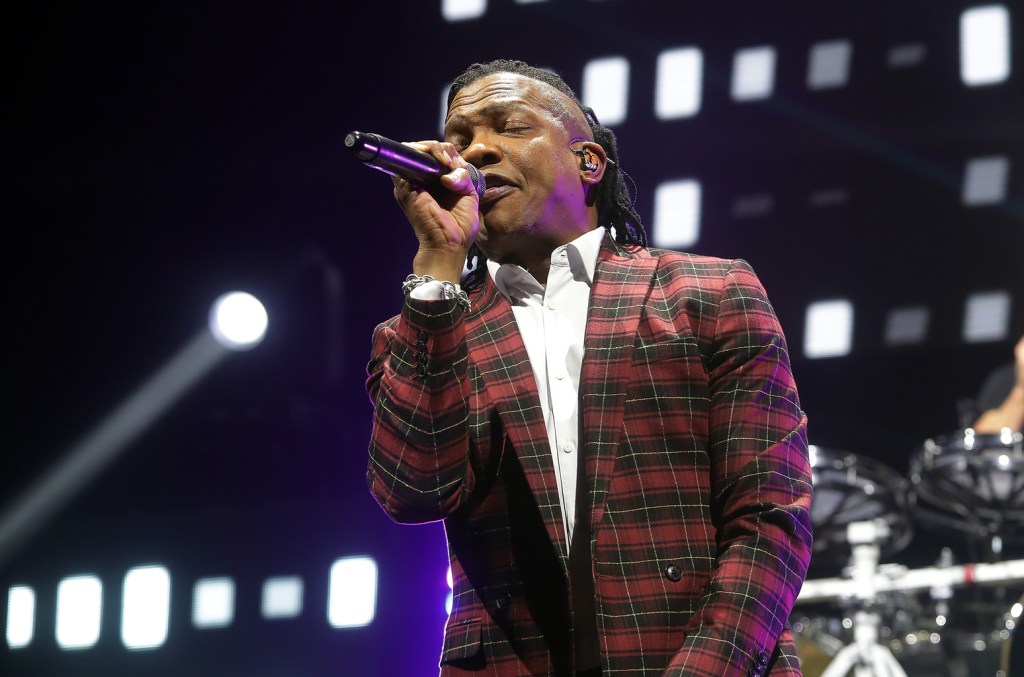
Former Newsboys member Michael Tait, who abruptly left the Contemporary Christian Music group in January, is speaking out about allegations of sexual misconduct and drug use brought against him over the past week.
In a lengthy Instagram post titled “My Confession, Michael Tait, June 10, 2025,” the singer-songwriter — who was also a founding member of Christian rap and rock trio DC Talk — directly addressed the reports, writing, “Recent reports of my reckless and destructive behavior, including drug and alcohol abuse and sexual activity are sadly, largely true. For some two decades, I used and abused cocaine, consumed far too much alcohol and, at times, touched men in an unwanted sensual way. I am ashamed of my life choices and actions, and make no excuses for them. I will simply call it what God calls it– sin. I don’t blame anyone or anything but myself. While I might dispute certain details in the accusations against me, I do not dispute the substance of them.”
Tait noted that following his departure from Newsboys, he spent six weeks at a treatment center in Utah, saying, “I was not healthy, spiritually or physically, and was tired of leading a double life.” He said he has been “clean and sober” since his time at the center, though he adds, “I still have lots of hard work ahead of me.”
He wrote, “I’m ashamed to admit that for years I have lied and deceived my family, friends, fans and even misled my bandmates about aspects of my life. I was, for the most part, living two distinctly different lives. I was not the same person onstage Sunday night that I was at home on Monday. … By His grace I can say that for the past six months, I have lived a singular life, one of utter brokenness and total dependence on a loving and merciful God.”
He also said that he is “committed to continuing the hard work of repentance” and that he will be doing so “quietly and privately, away from the stage and spotlight.”
He wrote: “I have hurt so many people in so many ways, and I will live with that shameful reality the rest of my life. I can only dream and pray for human forgiveness, because I certainly don’t deserve it. … Still, I want to say I am sorry to everyone I have hurt. I am truly sorry. It is my hope and prayer that all those I have hurt will receive healing, mercy and hope from the Merciful Healer and Hope-Giver.”
Last week, The Roys Report published what it called the results of a two-and-a-half-year investigation into allegations against Tait. The report included accounts from three people who claimed that Tait groomed and sexually assaulted them while on tour or at Tait’s home; the accusers alleged that the incidents took place between 2004 and 2014, while the report claimed that other sources said Tait had also been involved in drug use.
Current Newsboys members responded to that report last week, encouraging victims to come forward and stating, “We are horrified, heartbroken and angry at this report and in many ways, we feel as if we and our families have been deceived for the past fifteen years.”
Prior to his work with Newsboys, Tait was also known for his work as part of the groundbreaking CCM trio DC Talk from 1988 to 2001. Alongside fellow DC Talk members TobyMac and Kevin Max, Tait found success with songs such as “Jesus Freak” and the Billboard Hot 100 hit “Between You and Me.” Their 1995 album Jesus Freak rose to No. 16 on the all-genre Billboard 200 and earned a Grammy for best rock gospel album.
If you or someone you know has experienced sexual assault, you can call the National Sexual Assault Hotline at 1-800-656-HOPE (4673).
The 2025 Argentina Music Report from the Argentine Chamber of Phonogram and Videogram Producers (CAPIF) shows that streaming is still dominating the country’s music industry, making up 79% of total recorded music revenue in 2024.
Within the digital segment, subscription-based streaming leads with 65% of the revenue, solidifying itself as the main source of music monetization in Argentina. Meanwhile, ad-supported streaming accounted for 35% of the total.
“For the first time since emerging from the post-pandemic crisis, the numbers in our industry show a decline in 2024 compared to the previous year,” says CAPIF president Diego Zapico in the annual report shared with Billboard Español. “The causes are varied: they range from the macroeconomic reality of our country to specific factors within our sector that had been accumulating imbalances and were exposed over the past year.”
“The market decline is explained by the fact that the value of service tariffs does not keep pace with the evolution of the economy and therefore, at constant values, service prices are relatively lower today,” a representative of CAPIF tells Billboard Español. “In addition, the drop in revenues from communication to the public attributable to decree 765/24, published in the Official Gazette on August 28, 2024, which modified the intellectual property regime in Argentina, particularly with respect to the public performance of musical works, has also had an impact.”
Additionally, physical sales — though declining — still made up 7% of the market, with vinyl records solidifying their spot as collectors’ favorite format, accounting for 69% of physical sales compared to 31% for CDs.
“Our country is an endless source of talent, with an incredible diversity of styles, genres, and music,” adds Zapico. “It’s a place where creativity flows freely, where artists collaborate across boundaries, and where languages and sounds constantly mix, fuse, invent and reinvent themselves.”
The report also highlights the impact of Latin artists in the top 10 of the 2024 General Ranking. Among the most popular tracks are “Hola Perdida” by Luck Ra and KHEA, “Piel” by Tiago PZK and Ke Personajes, and “Que Me Falte Todo” by Luck Ra and Abel Pintos. Other hits, like “Una Foto” by Mesita, Nicki Nicole, Tiago PZK and Emilia, as well as “La_Original.mp3” by Emilia and Tini, showcase the reach of Argentine music in both the local and regional markets.
“This is our unique national identity when it comes to art and music, and it’s what drives the success of many of our artists around the world,” says Zapico. “From the legends and established stars to the newcomers who emerge year after year, their strong presence at the top of global and regional charts and scenes stems from this.”
Check out the full top 10 of the 2024 General Ranking below:
Luck Ra y KHEA, “Hola Perdida”
Tiago PZK y Ke Personajes, “Piel”
Luck Ra y Abel Pintos, “Que Me Falte Todo”
Feid y ATL Jacob, “Luna”
Mesita, Nicki Nicole, Tiago PZK y Emilia, “Una Foto”
Los Ángeles Azules y Emilia, “Perdonarte, ¿Para Qué?”
Emilia y Tini, “La_Original.mp3″
Floyymenor y Cris MJ, “Gata Only”
Luck Ra y BM, “La Morocha”
Salastkbron y Diego París, “Un Besito Más”
On the other hand, “Luna” by Feid and ATL Jacob leads the top 10 of the Spanish-Language Foreign Artists Repertoire; while Benson Boone leads the top 10 of the Foreign Artists Repertoire in Other Languages ranking.
To see the full annual charts, click here.
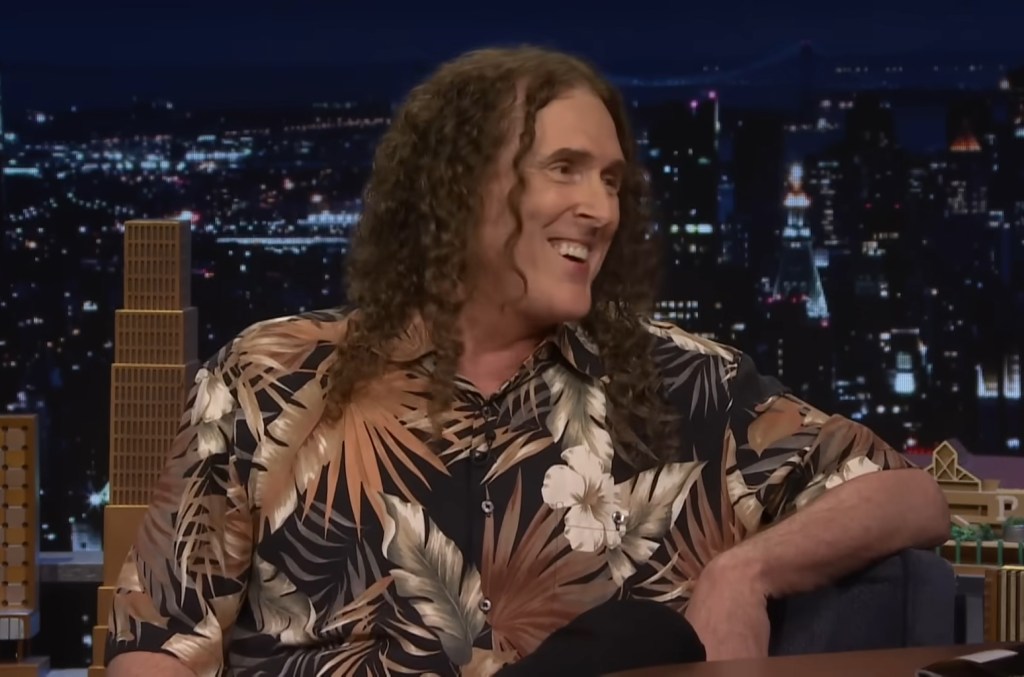
“Weird Al” Yankovic has had a storied career creating song parodies of some of the biggest artists in the world. But the singer can’t seem to get over his recent appearance on the cover of Billboard.
While speaking to Jimmy Fallon on The Tonight Show Tuesday (June 10), Yankovic gushed about gracing our latest ahead of his upcoming Bigger and Weirder Tour. “That was such a big deal to me, because I grew up being obsessed with Billboard magazine,” he raved, saying that the cover slot means that an artist has “made it” in his eyes. “That was like the bible of the entertainment industry.”
The recognition was especially meaningful to him as he says his name was spelled incorrectly in his first-ever Billboard magazine appearance (whoops). “They misspelled my name, and you’d think it would be ‘Yankovic,’” he recalled, laughing. “But it was ‘Weird Owl.’”
Trending on Billboard
Also on The Tonight Show, Yankovic revealed that he tried multiple times to get Princes’s approval on a song before his death in 2016. “Prince is like the one guy who was never into it, and he’s got a good sense of humor,” Yankovic began, noting that he once heard a recording of the late icon praising one of his spoofs.
“When it came to parodying one of his songs, not so much,” the musician continued, revealing that he submitted at least “half a dozen” rejected requests to Prince.
Yankovic also shared one of the ideas that never got Prince’s sign-off: a parody of the funk-pop star’s hit song “1999,” which would’ve been called “$19.99” and written in the style of a TV infomercial. “This killed me, because I thought it was going to be really funny,” Yankovic said on the late-night show.
Though Prince was never down for his songs to get the Weird Al treatment, the comedian has made joke-filled versions of hits originally by Michael Jackson, Lady Gaga, Queen, Police and countless other stars over the course of his decades-long career. Even Don McLean, who is supposedly hard to convince on the parody front, allowed Yankovic to put his own spin on “American Pie,” telling Billboard of the resulting Star Wars-themed “The Saga Begins,” “I thought it was better than the original.”
But because Yankovic has always been diligent about getting artist’s permissions before parodying them, he told Fallon that he won’t ever attempt to remake a Prince song in the future. “I try to respect the wishes of the artist, and he made his wishes very, very clear while he was with us,” Yankovic said on the late-night show, earning laughs from the audience.
Watch Yankovic’s full interview with Fallon above.
15 years ago, Wiz Khalifa solidified his mixtape legacy with the release of Kush & Orange Juice, and he returned with a sequel to the classic project earlier this year. Explore Explore See latest videos, charts and news See latest videos, charts and news The Pittsburgh native traveled to the NPR offices to make his […]
Ice Spice is taking a trip to Bikini Bottom soon, with the rapper officially securing her spot in an upcoming SpongeBob Squarepants movie. Per Deadline, Paramount Animation and Nickelodeon Animation announced on Tuesday (June 9) the new cast for the upcoming film The SpongeBob Movie: Search for Squarepants. Spice was announced alongside Regina Hall, Sherry […]
It’s been a week and a half of celebration for Swifties, following Taylor Swift‘s May 30 announcement of her triumph in buying the masters of her early catalog — six full-length albums and various assorted other releases — back from private equity firm Shamrock Holdings.
Explore
Explore
See latest videos, charts and news
See latest videos, charts and news
The news that Swift’s back catalog was now entirely hers also came with her revelation that while the superstar singer-songwriter had already finished all of her expected Taylor’s Version re-recording of her 2006 self-titled debut album, the final of her first six albums to be re-recorded — 2017’s Reputation — was still less than a quarter complete. Though the long-anticipated Taylor’s Version of that fan favorite does not appear to be coming anytime soon, all news is good news when it comes to Swift’s streaming fortunes — and indeed, her entire catalog got a boost from the recent headlines, led by Reputation bounding from No. 78 to No. 5 on the Billboard 200 albums chart.
How surprising is that Reputation jump? And what could be the next event to send Swift’s catalog screaming back up the charts? Billboard staffers answer these questions and more below.
Trending on Billboard
1. Taylor Swift’s Reputation rebounds from No. 78 to 5 on this week’s Hot 100, following her announcement that she had reacquired her masters. On a scale from 1-10, how surprised are you by this chart surge for the album?
Hannah Dailey: I would say 4. It’s not surprising at all to me that Reputation is the album fans immediately flocked to after the acquisition announcement, given how much anticipation there had been for Rep TV over the past few years. But I am a little surprised that it climbed as far as it did, because a 73-spot leap is insane.
Josh Glicksman: At best, a passing “Huh, how about that?” level of surprise, which equates to a 2 or maybe a low 3. Sweeping gains for Taylor Swift at any point, for any reason, should not really floor anyone who has been keeping tabs on the Billboard charts for the past two decades, particularly in the streaming era. Combine her massive announcement with the ever-growing anticipation of Reputation’s rerelease — and the comfort among her fan base to now resume listening to the original album — and a Billboard 200 that is relatively stagnant, and the runway was wide open for this sort of thing.
Jason Lipshutz: A 2. Taylor Swift buying back her masters was enormous news in the pop world, activating a fan base at a rare moment of (relative) downtime for the superstar. Her entire catalog received a streaming surge, but naturally, Reputation received the biggest bump, after years of Swifties waiting for Reputation (Taylor’s Version); that day may never come now, but with Swift regaining ownership of her fiercely beloved 2017 album, the streaming party was on, and Reputation enjoyed a predictably huge rise back into the top 10 of the Billboard 200.
Danielle Pascual: Honestly, 1. Since her first re-recorded album, Fearless (Taylor’s Version), dropped in April 2021, Reputation (Taylor’s Version) seems to have always been what fans have been the most excited for. I vividly remember that before Midnights was announced at the 2022 MTV VMAs, theories flooded Twitter/X about “clowning for rep tv.” And that was two albums (and two Taylor’s Versions) ago! It is one of her most iconic eras, and now that she owns it, it makes total sense to me that her fiercest supporters — who’ve boycotted those first six albums since Taylor posted that original letter in 2019 — have flocked back to it.
Andrew Unterberger: 1. A friend asked on Friday for my prediction of where it would re-chart and I answered “top five,” so.
2. Most of the rest of Swift’s albums catalog also gains this week, with four of her albums even re-entering the Billboard 200. Are any of the movers in her catalog this week unexpected to you for how big (or how small) their gains were?
Hannah Dailey: I guess I’m a little surprised that albums like Midnights (up 75-50) and Folklore (up 69-52) shot up as much as they did, since they’re kind of unrelated to the acquisition news. But I’m definitely surprised that both Speak Nows reentered the chart (No. 170 for the original and No. 185 for the Taylor’s Version), while Fearless and Fearless (Taylor’s Version) did not. If I was going to pick between the two, I would’ve predicted more love for Fearless – though as a Speak Now diehard, I’m happy to see it.
Josh Glicksman: I’m slightly surprised at both the original and rerelease of Speak Now not making a larger splash in their reentries on the Billboard 200, but perhaps that’s rooted in my own internal bias towards the album. Additionally, it’s not shocking that fans are still gravitating toward her more recent album releases — particularly given that her chart movement this week is largely driven by streaming activity — but I would’ve expected some of the original versions of her reacquired catalog to overtake their respective rereleases. (The Taylor’s Version of 1989 still outranks the original, No. 61 to No. 73; Red (Taylor’s Version) is No. 147 while the original is not on the chart.)
Jason Lipshutz: I’m a little surprised by the rises of some of the re-recorded albums, like 1989 (Taylor’s Version) moving up 19 spots to No. 61 and Speak Now (Taylor’s Version) re-entering the chart. The news of the recordings purchase was focused on her six original albums, not the Taylor’s Version full-lengths that she began putting out in 2021… but such is the demand for all things Taylor, where, in a scenario in which those original albums get re-embraced by fans, the re-records still get an uptick in listens, too.
Danielle Pascual: I’m shocked that neither Fearless nor Fearless (Taylor’s Version) are on this week’s chart. The former was the album that won Swift her first album of the year Grammy and kickstarted her rise to megastar status, and the latter marked the beginning of Taylor’s re-recording journey. It contains some of her most popular songs — including her first-ever Hot 100 top 5 hits, “Love Story” and “You Belong With Me” — so I at least expected it to enter the chart in some way. On the other hand, I definitely saw a big chart moment for the original 1989 coming (it re-enters at No. 73). I wouldn’t be the first to admit that the OG “Style” is better than the “Taylor’s Version,” although, 1989 (Taylor’s Version) does contain some excellent From the Vault tracks!
Andrew Unterberger: While my “top five” prediction proved right on for Reputation, my “just outside the top 10” prediction for the self-titled album…. not so much. Taylor Swift did re-enter the Billboard 200, but only at No. 64, which is obviously much lower than I expected. I suppose I overestimated the sentimentality around Swift’s debut — and since we actually still may get that Taylor’s Version at some point, maybe fans are still waiting for that moment to dive back in anyway.
3. While Swift admitted she had not yet gotten through much of the Reputation re-recording at the time of her announcement, she also said the re-recording of her self-titled debut had already been completed. Do you think we’ll see the full release of that Taylor’s Version – and if so, about when?
Hannah Dailey: I get the sense that she’s ready to close the door on all things Taylor’s Version and Eras, especially now that she owns all her work. But since she’s already spent all that time and effort re-recording Debut, there’s no reason not to release it, especially knowing how much fans want it. I bet we’ll get it soon, probably by the end of the year – maybe in October to honor the month it originally dropped.
Josh Glicksman: Yes, but I wouldn’t expect it any time soon unless she needs a push in momentum for some reason, which is rarely, if ever, the case with her. I wouldn’t be surprised to see Taylor’s Version of her self-titled album appear in fragments — rerecorded fan favorites that are webstore exclusives and packaged to new releases or vault tracks that arrive just in time to be considered for awards season. At some point, I think it’ll arrive in full, but it might come in drips first.
Jason Lipshutz: “I really love how it sounds now,” Swift wrote about Taylor Swift (Taylor’s Version) when she announced that she had bought back her masters. If that’s the case, there’s no way it’s never seeing the light of day. Next year for the 20th anniversary would make sense, but if we don’t receive a new studio album in 2025, the already-finished re-recorded debut album would be a lovely consolation prize this year.
Danielle Pascual: I am pretty certain we will see Taylor Swift (Taylor’s Version) sometime next year though, as it would be the perfect way to celebrate her debut album’s 20th anniversary.
Andrew Unterberger: October 24, 2026 — or whenever the closest Friday to that anniversary date is. Mark your calendars now.
4. Swiftie fandom is as such that it feels like almost any major development in Swift’s career (or life) leads to major gains in her catalog. What do you think the next such occasion will be for her that may have a similar bearing on her chart movement?
Hannah Dailey: An obvious answer would be that she announces a new album, but I do reckon we’re probably getting close to TS12. Beyond that, it could be anything. Maybe Travis Kelce will propose, and her love-song canon — from most of Lover to “So High School” and “The Alchemy” on Tortured Poets – will get a major boost.
Josh Glicksman: It’s easy to speculate that a long-anticipated, highly-speculated question from a certain NFL tight end could cause such a gain, but the more likely answer to me here is that’ll it come more naturally when she’s gearing up for another album release, be it of fully new material or one of the remaining Taylor’s Versions. But how fun would it be if we got a new single from Swift out of the blue to celebrate her reacquisition of the catalog? All I’m saying is: The song of the summer season is upon us; it’s not too late, Taylor!
Jason Lipshutz: Maybe a major change in her personal life that would cause a huge spike for “Love Story,” with Swifties posting the lyrics “Go pick out a white dress/ It’s a love story, baby, just say ‘Yes’” into infinity? The world is waiting for Swift and Travis Kelce to make an engagement announcement; who knows if it will happen, or happen anytime soon, but if and when it does, I fully expect every romance-related Swift song to explode on streaming services.
Danielle Pascual: It’s hard to imagine any other moment would kickstart gains as major as this. The back-and-forth of Taylor’s masters has been top of mind for both her and her fans since the drama began six years ago, and now that chapter is finally closed. That being said, if she wanted to continue this momentum for her original albums, I think it would be smart to re-release vinyl editions of the originals, whether as some sort of collector’s set or individually. The Record Store Day editions of albums like 1989 and Red are highly sought after for vinyl-collecting Swifties (they go for upwards of thousands on the resale market), and I’m sure the fans would flock to any sort of special re-issues, therefore triggering new gains on the Billboard 200.
Andrew Unterberger: I’ll swipe a prediction from our Charts team’s Trevor Anderson and say that the next big Taylor bump will come when she’s announced as the headliner for a certain February 2026 gig at Levi’s Stadium in California.
5. Since we’re unlikely to get it at this point anyway, what would have been your ultimate dream get for a From the Vault Reputation (Taylor’s Version) track?
Hannah Dailey: Having Charli xcx on a Vault song would’ve been legendary. Charli opened for Taylor on the Reputation Tour, so it would’ve been such a cool full-circle moment to see them reunite for something Reputation-related almost a decade later, especially now that Charli has had so much success with Brat. Charli also could’ve elevated the electro-pop feel Taylor experimented with a lot on the original Rep, and it would’ve been an epic way for both women to put those “Sympathy Is a Knife” feud rumors to bed.
Josh Glicksman: If her latest few singles are any indication, Reneé Rapp feels like she would’ve met the Reputation moment and run with it — so I would’ve loved to get her as an FTV guest collaborator.
Jason Lipshutz: The mash-up between “New Year’s Day,” “Long Live” and “The Architect” is still echoing in my head after seeing it performed at Swift’s final stop on her Eras Tour. I was hoping against hope that we’d get it (or another “New Year’s Day” mash-up) with Reputation (Taylor’s Version), but then again, it’s not so bad that that performance belongs to that singular moment forever.
Danielle Pascual: My number one pick for a collaborator on a From the Vault track is definitely Beyoncé. There were a lot of rumors surrounding a team-up after the two showed up at each other’s concert film premieres at the end of 2023, and it would be awesome to see that come into fruition for a brand new Reputation era track. Beyond that — this is a huge reach, but my dream is for Taylor to re-release Reputation in full as a collab album. I’d want all 15 of the album’s original tracks to have a different feature with only female artists. I can see Doechii doing Kendrick Lamar’s part on “Bad Blood,” Sabrina Carpenter on “Call It What You Want” and Halsey on “Don’t Blame Me.” Also, how full-circle would it be to see Olivia Rodrigo on “New Year’s Day”?! Never say never…
Andrew Unterberger: Many fans might answer this question hoping for a full solo version of “End Game,” without the Future and Ed Sheeran feature appearances. I say go the other way with it: Let’s get a full-on…. well, I don’t think we could ever credibly say “posse cut” about a Taylor Swift-led song, but an extended remix with even more pop star guest verses, anyway. Maybe her Reputation Tour openers Camilla Cabello and/or Charli XCX could’ve added 16 bars? Perhaps they could’ve passed the mic to Florence Welch, a future Tortured Poets supporting player and an obvious influence on some Reputation cuts? And then for the final guest: Would a tell-’em-how-you-feel verse from Justin Timberlake, then undergoing some reputational concerns of his own, have been a great idea or a catastrophic one? Dunno, but I’d certainly be interested to find out the answer.
After having a difficult time on stage at Gov Ball, Hozier has made the decision to postpone two of his upcoming shows as he recovers from a virus. The singer-songwriter announced Monday (June 9) that he would be rescheduling his shows in Camden, N.J., and Ridgedale, Mo., writing on X that he is unable to […]
Margo Price is digging deep into her country music foundations on her new album, Hard Headed Woman, set to release Aug. 29 via Loma Vista Recordings. The project, recorded at Nashville’s RCA Studio A with producer Matt Ross-Spang, marks the first album Price has recorded in Nashville, a city she has called home for two […]
Sierra Ferrell, who won artist of the year at last year’s Americana Honors & Awards, is nominated in that category again this year, along with Billy Strings, who won in 2022-23; Charley Crockett, Joy Oladokun and Waxahatchee.
Ferrell is vying to become the second woman to win artist of the year twice and the first to do so in back-to-back years. Brandi Carlile won in 2019 and 2021. For his part, Strings would become just the second artist to win three or more times. The late John Prine won four times.
Trending on Billboard
MJ Lenderman, Charley Crockett, Nathaniel Rateliff & the Night Sweats and Gillian Welch & David Rawlings were each nominated in multiple categories. Lenderman is up for album of the year for Manning Fireworks, song of the year for “Wristwatch” and emerging act of the year. Crockett is up for album of the year for Lonesome Drifter and artist of the year. Nathaniel Rateliff & the Night Sweats are up for album of the year for South of Here and song of the year for “Heartless.” Welch & Rawlings are nominated for album of the year for Woodland and duo/group of the year.
Larkin Poe, which won duo/group of the year last year, is nominated again in that category, as is the 2015 winner, The Mavericks. Jason Isbell, a three-time winner for album of the year, is nominated again this year for Foxes in the Snow.
The 24th annual Americana Honors & Awards will be held on Sept. 10 at the historic Ryman Auditorium in Nashville.
Here’s the full list of nominees:
Artist of the Year
Charley Crockett
Sierra Ferrell
Joy Oladokun
Billy Strings
Waxahatchee
Album of the Year
Lonesome Drifter, Charley Crockett; Produced by Charley Crockett & Shooter Jennings
Foxes in the Snow, Jason Isbell; Produced by Jason Isbell & Gena Johnson
Manning Fireworks, MJ Lenderman; Produced by Alex Farrar & MJ Lenderman
South of Here, Nathaniel Rateliff & The Night Sweats; Produced by Brad Cook
Woodland, Gillian Welch & David Rawlings; Produced by David Rawlings
Song of the Year
“Johnny Moonshine,” Maggie Antone; Written by Maggie Antone, Natalie Hemby & Aaron Raitiere
“Ancient Light,” I’m With Her; Written by Sarah Jarosz, Aoife O’Donovan & Sara Watkins
“Wristwatch,” MJ Lenderman; Written by MJ Lenderman
“Sunshine Getaway,” JD McPherson; Written by Page Burkum, JD McPherson & Jack Torrey
“Heartless,” Nathaniel Rateliff & The Night Sweats; Written by Nathaniel Rateliff
Duo/Group of the Year
Julien Baker & TORRES
Dawes
Larkin Poe
The Mavericks
Gillian Welch & David Rawlings
Emerging Act of the Year
Noeline Hofmann
MJ Lenderman
Medium Build
Maggie Rose
Jesse Welles
Instrumentalist of the Year
Fred Eltringham
Alex Hargreaves
Megan Jane
Kaitlyn Raitz
Seth Taylor
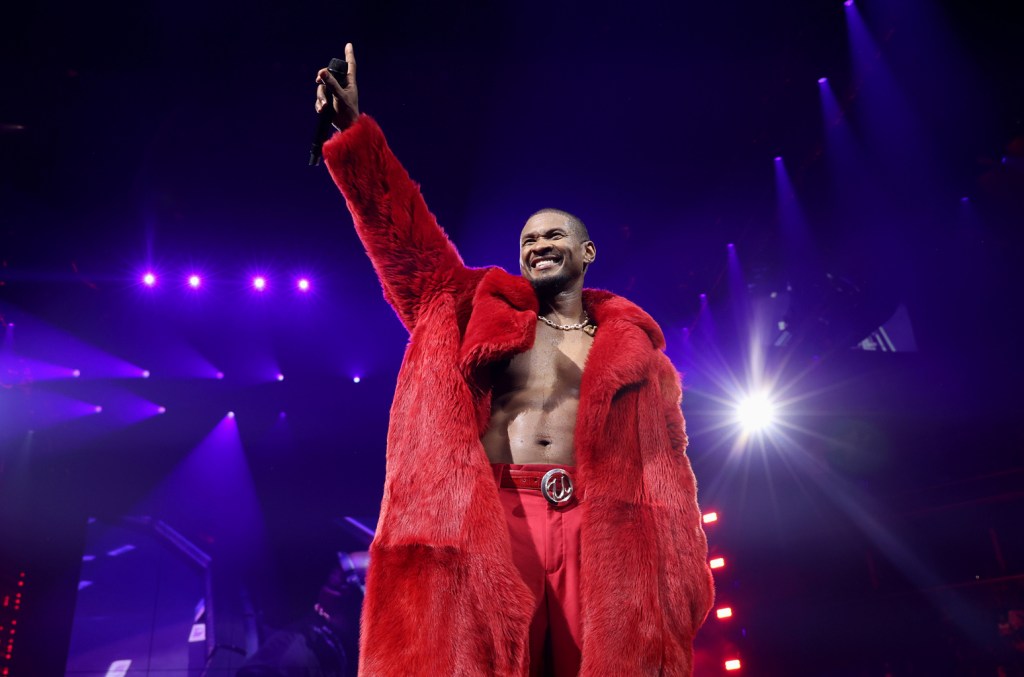
Usher was sitting at home watching the 2025 BET Awards Monday night (June 9) when he recognized host Kevin Hart‘s fuzzy red coat. Ahead of Teyana Taylor‘s television debut performance of her new single “Long Time,” Hart strutted down the aisle of Peacock Theater at L.A. Live wearing Usher’s signature jacket from his most recent […]

 State Champ Radio
State Champ Radio 